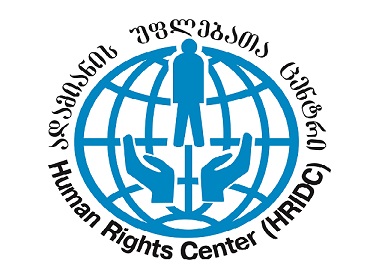Constitutional Court of Georgia fully satisfied the constitutional lawsuit of Human Rights Center
December 17, 2018

The Constitutional Court of Georgia fully satisfied the constitutional lawsuit of Kh.K, which was prepared by Human Rights Center and declared the disputed norms unlawfully restricted the rights to fair trial and equality; the Constitutional Court declared them unconstitutional with respect to the Articles 14 and 42 of the Constitution of Georgia.
HRC submitted the lawsuit to the Constitutional Court on May 30, 2017. The lawsuit claims to declare the words of the Article 56 Part 5 of the Criminal Procedural Code of Georgia unconstitutional. After the HRC submitted the constitutional lawsuit to the Constitutional Court of Georgia, three citizens also appealed the abovementioned norm in the Constitutional Court. The Court unified all lawsuits and the Judges discussed them together on September 20. Considering the fact that HRC was the first to submit the constitutional lawsuit with regard to the mentioned legislative norms, the Court appointed HRC lawyer Eka Kobesashvili to be the speaker applicant at the hearing.
In accordance to the disputed norms, prosecutor’s resolution on refusing the person to be victim in less grave and grave crimes and the prosecutor’s resolution on annulling the victim status shall not be appealed in the court. It violates the right of an individual to defend his/her rights via court litigation (Article 42 of the Constitution). At the same time, victims of the particularly grave crimes could appeal the prosecutor’s resolution in the first instance court. Similar regulations placed the victims of grave and less grave crimes in unequal conditions that contradicted the equality of arms (Article 14 of the Constitution of Georgia).
The respondent – Parliament of Georgia claimed that differentiated restriction of the victims’ rights to appeal the prosecutor’s resolution aimed to protect the court from overload. Consequently, the respondent believed the rights to fair trial and equality of arms were not violated.
The Constitutional Court of Georgia ruled that granting the victim status is pre-condition to enable an individual to have access to the substantial rights guaranteed under the law. Consequently, the claimant is eager to appeal the prosecutor’s resolution in the court. Given all above-mentioned circumstances, the Constitutional Court ruled that on the one hand the desire to appeal the prosecutor’s resolution in the court, and on the other hand, necessity to respect discrimination-free relationship, was above its goal – to prevent the court from overload.
Considering the abovementioned, the Constitutional Court ruled that the disputed norms restricted the right to fair trial and principle of equality of arms and declared them unconstitutional with regard to Articles 14 and 42 Part I of the Constitution of Georgia.
Human Rights Center
News
December 13, 2023
Ethnic minorities outside the peace dialogue
November 6, 2023
‘Peace’ agenda of political parties
Popular
Articles
February 13, 2024



